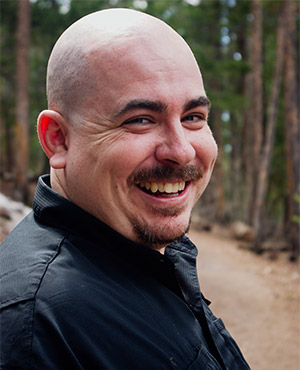
Steve Krautkramer
Steve Krautkramer is a Psychotherapist from Colorado, USA.
What sort of therapy practitioner are you?
I am a Psychotherapist, but I use somatic work and EMDR instead of most traditional talk therapies. I also employ mindfulness and meditative work to my sessions. I have found working with a person’s subconscious, their body’s nervous system, and changing limiting beliefs gained from early life experiences are the areas that need to be healed first before lasting change can truly happen.
How long have you been practicing?
Since early 2012.
Do you see clients from home or in a clinic?
I see clients at a clinic I share with a few other therapists.
What problems/issues do you treat most frequently?
I most frequently treat depression, anxiety, and PTSD. However, typically it is healing trauma that is what is truly at the core of most people’s problems.
What are your biggest frustrations running your practice?
What do you find hardest about your daily work?
The hardest thing about my daily work is actually not working with clients, that’s actually energizing for me and I love doing it. I especially love seeing my clients change for the better before my very eyes as they heal from something they never thought they would ever be able to overcome. The hardest thing for me is when I have potential new clients setup an appointment and then either not come in or give last minute excuses for not showing up.
Do you find your professional body supportive and helpful? Do they help you create connections with fellow therapists?
I get plenty of support from other psychotherapists, and have made many connections with others in this field. It is one of the things I like about this field; most of us are supportive in nature. I’ve realized most of the issues I struggle with, others have had to deal with as well.
How do you balance work and life? (Stress management/avoiding burnout…)
To balance work life and stress, I practice martial arts, go for acupuncture treatments, and also see my own therapist. I believe self-care in this work is mandatory in order to be effective. I also firmly believe every therapist should be doing their own work on themselves if they are serious about providing quality care.
What frustrates you most about the way mental health is dealt with in your country?
My biggest frustration with how mental health is handled is the stigma attached to getting professional help. People can be very reluctant to admit they need help and feel as if they are weak in doing so. I also am equally frustrated by the over-prescribing of drugs, particularly anti-depressants which can be incredibly dangerous to get off of.
I believe medication should be used to compliment healing and not be the only solution. It should not be something a person has to take for the rest of their lives. Throwing a pill at a problem to make it go away does a person a huge disservice in the long run.
Can you tell us about your most uplifting experience treating a recent client? (anonymously, of course!)
I’ve had a few very uplifting experiences, it’s hard to choose just one.
I was helping a man drop his anger issues and heal from the traumas inflicted by growing up with an extremely abusive stepfather and neglectful mother. He reports that is marriage is better than it ever has been and his relationship with his own children is also much better. It only took 3 sessions to heal most of the damage!
The other one was with a woman who had gone to multiple therapists in the past and none of them helped her, and some actually made her worse. I consider it a bit of a miracle that she was willing to give it another go. She was raised with one parent who was physically, mentally, and sexually abusive, and the other parent had severe mental disturbances which later required multiple hospitalizations and prison time. She was able to start feeling safe in the world for the first time and started to release a lot of anger and has a much improved relationship with her husband. She continues to make great strides in improving her life.
Both of these clients needed a person who could be authentically there with them and help them stop feeling immense levels of shame.
You can read more about Steve’s work here.

Pictured above: Steve’s therapy room.
If you would like to be our next Practitioner in Focus, click here and let us know!










